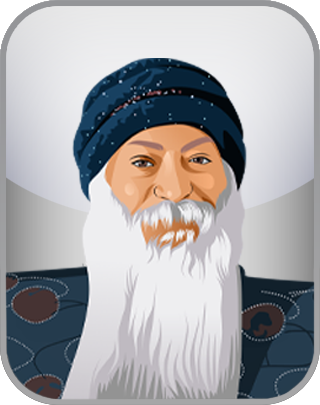Osho Test
How much do you agree with Osho?
Osho, a spiritual teacher known for his provocative ideas and unconventional approach, continues to inspire and polarize people worldwide. His teachings challenged traditional norms, encouraging individuality, questioning societal structures, and seeking spirituality beyond dogma.
However, his legacy is also marked by controversy and scandals, including allegations of manipulation and excess within his community. This test explores your alignment with Osho’s philosophy, touching on themes of authenticity, freedom, spirituality, and critical thinking. Whether you see him as a visionary or a provocateur, this test offers a chance to reflect on his thought-provoking ideas and their resonance with your own beliefs.
Question 1 of 25
It is far better to be condemned by the whole world than to remain miserable, phony, and false and live the life of somebody else.
| Disagree | Agree |
NEXT
The Osho Test was created by IDRlabs.
Osho, born Chandra Mohan Jain in 1931 in India, was a spiritual teacher and mystic whose teachings continue to captivate and divide audiences. Known for his provocative perspectives on life, spirituality, and society, Osho challenged conventional thinking, emphasizing individuality, freedom, and self-discovery. He believed that organized religions and societal norms often stifled human potential and advocated for a more personal, meditative approach to spirituality. His philosophies drew from Eastern and Western traditions, blending insights from Zen, Buddhism, Hinduism, and existentialist philosophy to create a unique spiritual framework.
Osho’s appeal lay in his bold rejection of dogma and his ability to articulate complex spiritual concepts in accessible ways. He encouraged his followers to live authentically, discard societal conditioning, and embrace life with enthusiasm and mindfulness. A strong advocate for meditation, Osho introduced techniques such as “Dynamic Meditation,” a physically active and cathartic practice designed to help people release their pent-up emotions and connect with their true selves. His teachings often emphasized love, humor, and the rejection of guilt, presenting a vision of spirituality rooted in joy rather than asceticism.
However, Osho's life and legacy are inextricably tied to scandal and controversy. In the 1980s, he established an ashram in Oregon, USA, which became a focal point of legal and ethical disputes. Allegations of fraud, bioterrorism, and abuse of power emerged within his commune, leading to significant legal battles and his eventual deportation from the United States. His followers, the Rajneeshees, were accused of orchestrating a bioterror attack by poisoning a town's salad bars with salmonella, in what remains one of the largest domestic terrorist incidents in U.S. history. Osho himself faced charges of immigration fraud and was accused of maintaining a lavish lifestyle that clashed with his spiritual teachings.
These controversies overshadowed his philosophical contributions for many and made him a polarizing figure. Critics accused Osho of hypocrisy and manipulation, while supporters argued that the scandals were exaggerated or misrepresented by media and political adversaries. His unapologetic embrace of material wealth, including his fleet of Rolls-Royces, further fueled criticism but also served as a deliberate rejection of traditional notions of spiritual renunciation.
Despite the controversies, Osho’s teachings continue to resonate with millions of people globally. His insights into mindfulness, meditation, and the importance of living authentically have inspired spiritual seekers, artists, and intellectuals alike. His books, often transcribed from his discourses, address topics ranging from love and relationships to creativity and consciousness, offering timeless wisdom for those navigating modern life.
Osho’s dual legacy as a visionary and a scandalous provocateur makes him one of the most complex spiritual figures of the 20th century. While his detractors view him as a manipulative cult leader, his supporters celebrate him as a revolutionary thinker who dared to question societal norms and empower individuals. Whether admired or criticized, Osho’s ideas continue to spark conversation, self-reflection, and debate, ensuring his enduring relevance in a world increasingly seeking answers beyond traditional frameworks.
This test cannot be used to provide clinical assessments or an accurate evaluation of your personality. Clinical assessments should always be done in cooperation with a mental health professional. For more information about any of our online tests and quizzes, please consult our Terms of Service.
References
- Kuhlman, M., & Zuckerman, M. (1993). A comparison of three structural models for personality: The Big Three, the Big Five, and the Alternative Five. Journal of Personality and Social Psychology, 65(4), 757–768.
- Zuckerman, M. (2002). Zuckerman-Kuhlman Personality Questionnaire (ZKPQ): An alternative five-factorial model. In B. de Raad & M. Perugini (Eds.), Big Five Assessment (pp. 377–396). Hogrefe & Huber Publishers.

